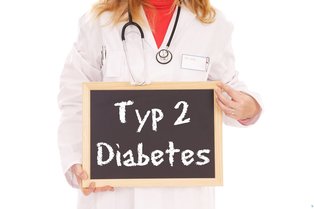Low vitamin D level predicts CV morbidity, mortality in type 2 diabetes

01/2017
Older adults with type 2 diabetes and low 25-hydroxyvitamin D levels were more likely to experience a cardiovascular event vs. those with higher vitamin D levels, according to findings from a Swedish study.“The significant association was consistent when adding conventional [CV] risk factors, physiological variables including [parathyroid hormone] and previous [CVD] into the analyses,” Maria Samefors, PhD, of the department of medical and health sciences at Linköping University, Sweden, and colleagues wrote. “This finding is clinically significant because a 20-nmol/L increase in serum 25-(OH)D3 was associated with a 37% decrease in risk [for CV] morbidity and mortality, a result that is emphasized by the high prevalence of vitamin D deficiency in our participants.”
Samefors and colleagues analyzed data from 698 adults aged 55 to 66 years with type 2 diabetes participating in the Cardiovascular Risk in Type 2 Diabetes – A Prospective Study in Primary Care (CARDIPP; mean age, 61 years; 66% men). Researchers analyzed serum 25-(OH)D levels at baseline and used Cox regression analyses to calculate HRs for first myocardial infarction, stroke or CV mortality according to 25-(OH)D status. Participants were stratified by vitamin D quartiles: 7.5 nmol/L to 35.5 nmol/L (first quartile); 35.5 nmol/L to 47.5 nmol/L (second quartile); 47.5 nmol/L to 61.8 nmol/L (third quartile); and 61.8 nmol/L to 164.9 nmol/L (fourth quartile). The cohort was followed for a mean of 7.3 years.
Researchers found that serum 25-(OH)D was inversely associated with risk for CV morbidity and mortality when analyzed as a continuous variable (HR = 0.98; 95% CI, 0.96-0.99). Compared with participants in the fourth quartile, HR was 3.46 for participants in the first quartile (95% CI, 1.6-7.47); 2.26 for participants in the second quartile (95% CI, 1.01-5.06); and 1.62 for those in the third quartile (95% CI, 0.7-3.76). Results persisted after adjustment for age, sex and season, and remained significant after further adjustment for CV risk factors, parathyroid hormone level and previous CVD (P = .027).
“This result suggests that vitamin D could be considered as a prognostic factor for [CVD] and death,” the researchers wrote. “This is important because the risk of [CVD] is generally high in people with type 2 diabetes and health care professionals need more accurate tools to identify individuals with an increased risk.” – by Regina Schaffer
http://www.healio.com/endocrinology/diabetes/news/in-the-journals/%7Bad685f21-7866-4f30-b8c7-a86d554e3b58%7D/low-vitamin-d-level-predicts-cv-morbidity-mortality-in-type-2-diabetes
Older adults with type 2 diabetes and low 25-hydroxyvitamin D levels were more likely to experience a cardiovascular event vs. those with higher vitamin D levels, according to findings from a Swedish study.“The significant association was consistent when adding conventional [CV] risk factors, physiological variables including [parathyroid hormone] and previous [CVD] into the analyses,” Maria Samefors, PhD, of the department of medical and health sciences at Linköping University, Sweden, and colleagues wrote. “This finding is clinically significant because a 20-nmol/L increase in serum 25-(OH)D3 was associated with a 37% decrease in risk [for CV] morbidity and mortality, a result that is emphasized by the high prevalence of vitamin D deficiency in our participants.”
Samefors and colleagues analyzed data from 698 adults aged 55 to 66 years with type 2 diabetes participating in the Cardiovascular Risk in Type 2 Diabetes – A Prospective Study in Primary Care (CARDIPP; mean age, 61 years; 66% men). Researchers analyzed serum 25-(OH)D levels at baseline and used Cox regression analyses to calculate HRs for first myocardial infarction, stroke or CV mortality according to 25-(OH)D status. Participants were stratified by vitamin D quartiles: 7.5 nmol/L to 35.5 nmol/L (first quartile); 35.5 nmol/L to 47.5 nmol/L (second quartile); 47.5 nmol/L to 61.8 nmol/L (third quartile); and 61.8 nmol/L to 164.9 nmol/L (fourth quartile). The cohort was followed for a mean of 7.3 years.
Researchers found that serum 25-(OH)D was inversely associated with risk for CV morbidity and mortality when analyzed as a continuous variable (HR = 0.98; 95% CI, 0.96-0.99). Compared with participants in the fourth quartile, HR was 3.46 for participants in the first quartile (95% CI, 1.6-7.47); 2.26 for participants in the second quartile (95% CI, 1.01-5.06); and 1.62 for those in the third quartile (95% CI, 0.7-3.76). Results persisted after adjustment for age, sex and season, and remained significant after further adjustment for CV risk factors, parathyroid hormone level and previous CVD (P = .027).
“This result suggests that vitamin D could be considered as a prognostic factor for [CVD] and death,” the researchers wrote. “This is important because the risk of [CVD] is generally high in people with type 2 diabetes and health care professionals need more accurate tools to identify individuals with an increased risk.” – by Regina Schaffer
http://www.healio.com/endocrinology/diabetes/news/in-the-journals/%7Bad685f21-7866-4f30-b8c7-a86d554e3b58%7D/low-vitamin-d-level-predicts-cv-morbidity-mortality-in-type-2-diabetes
